FAO Schwarz and the End of an Era: Looking Back at the World’s Most Famous Toy Store
When Frederick August Otto Schwarz immigrated to Baltimore from Germany in 1856, he dreamed of opening “a magical toy emporium that featured extraordinary, one-of-a-kind toys from all over the world, while creating a theatrical experience to showcase merchandise in a way that would bring it to life.” Six years later, he and his two older brothers opened “Toy Bazaar,” a small fancy-goods store that sold stationary and toys. 150 years later, their store, having long since moved to New York City and been renamed FAO Schwarz, would be known around the world and crowned the oldest toy store in the United States.
But all that changed last week, when the toy wonderland closed its famous Fifth Avenue doors for good. Its current owner, Toys “R” Us, cited rising rents as the reason for the departure, but tried to assure the public that they’d find a new location (they reportedly checked out a space in Times Square). For many of us, though, a different address–perhaps one without the giant floor piano that was immortalized in the 1988 Tom Hanks movie “Big”–will be a huge blow to our childhood nostalgia. So, while the fate of FAO Schwarz is still up in the air, let’s take a trip down memory lane.
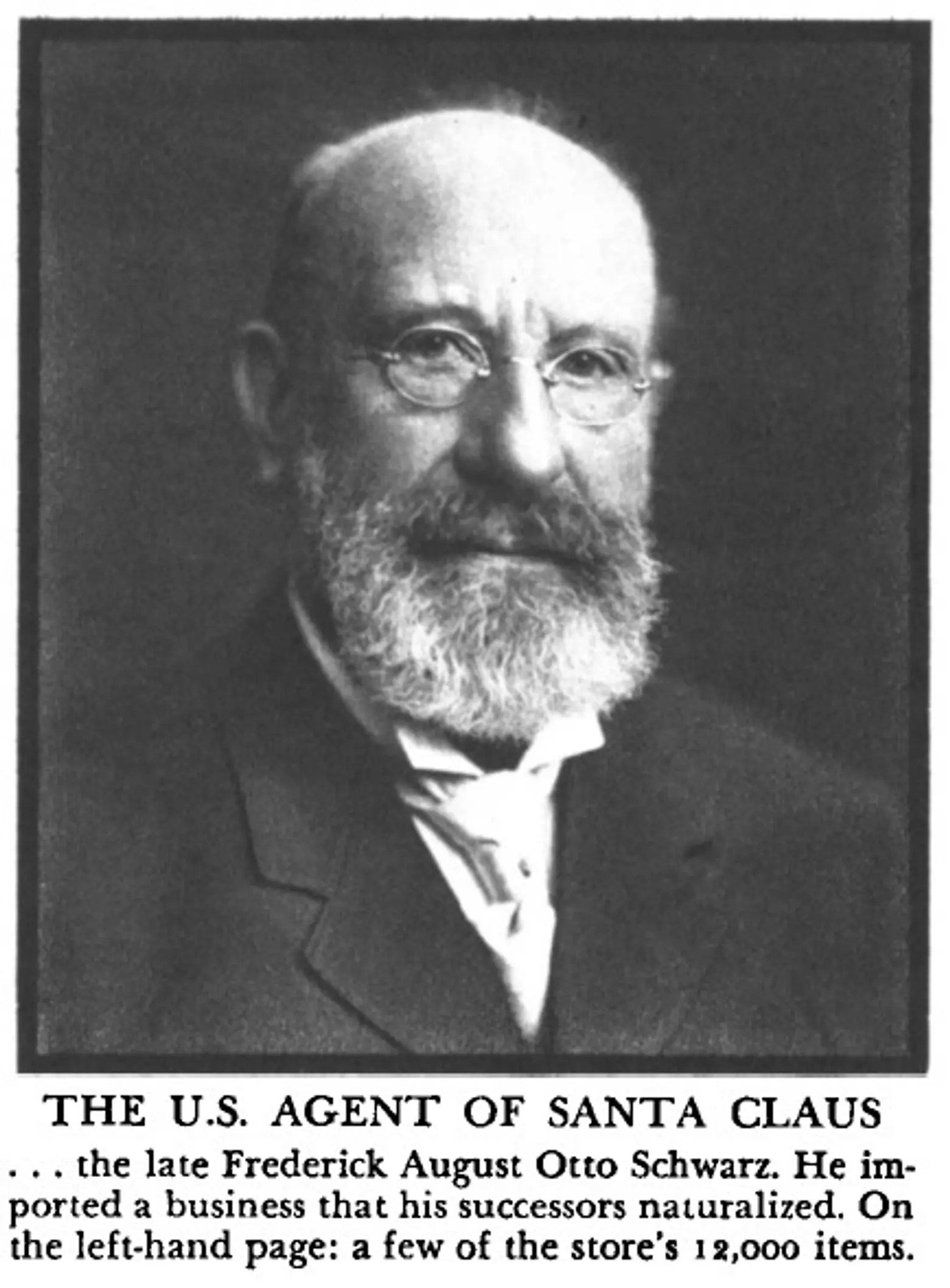
Frederick August Otto Schwarz
Toy Bazaar was a hit in Baltimore, and the three Schwarz brothers opened subsequent locations in Boston and Philadelphia. In 1870, Frederick moved to New York City and opened Schwarz Brothers-Importers at 765 Broadway (at East 9th Street), stocking the store with expertly crafted toys from Europe and growing it into the go-to place for unique, high-quality playthings. Six years later, he opened a second location at Broadway and 27th Street and launched a catalog, becoming one of the first mail-order businesses in the country.
Believe it or not, Macy’s was not the first place to bring in a live Santa Claus for the holidays. They got the idea from FAO Schwarz, who did this first in 1875. For years prior, the store held an annual exhibition of the hottest toys coming out for that year’s Christmas season, which sounds a lot like today’s barrage of toy commercials that start as early as October.
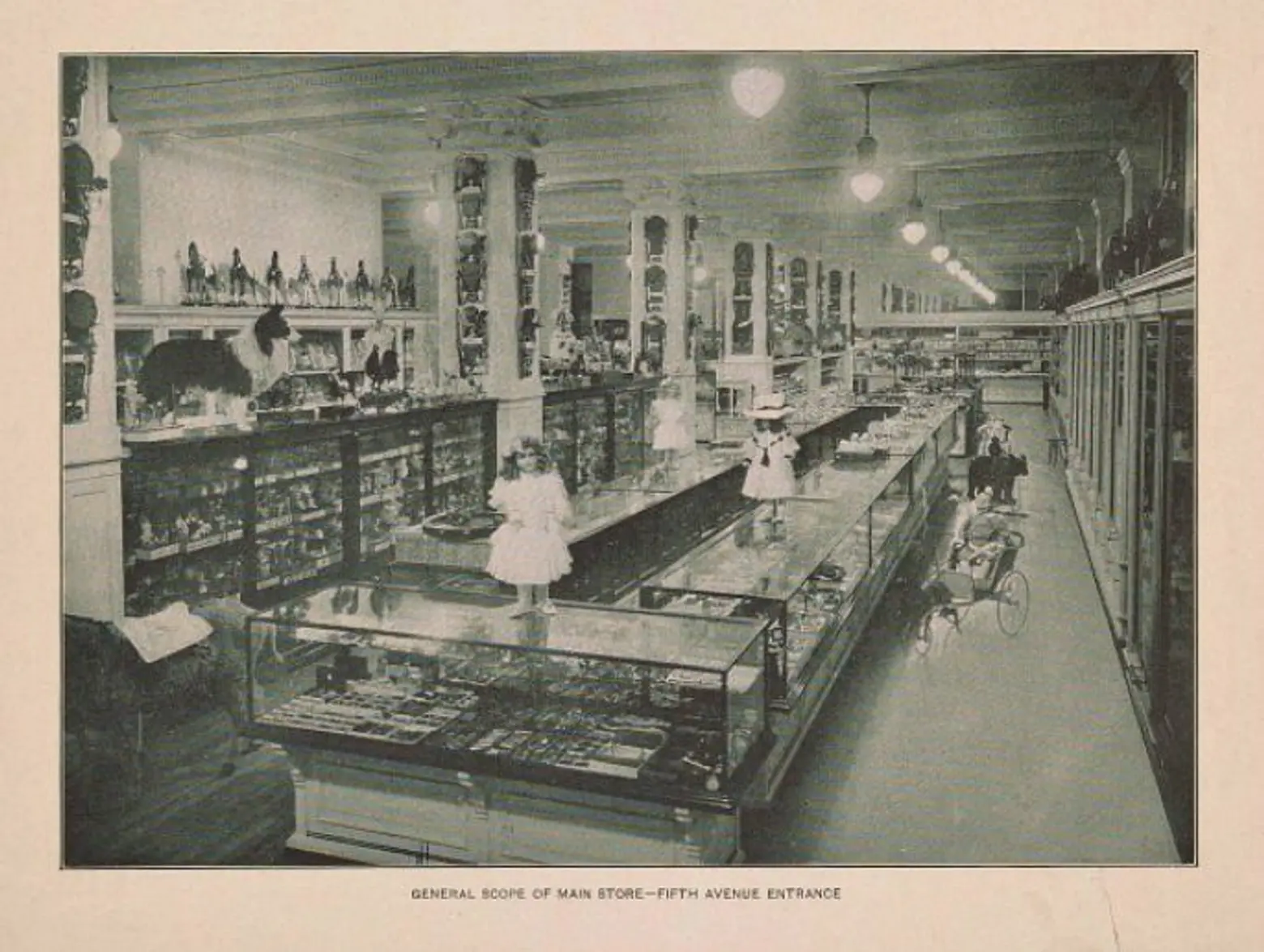
Inside the Fifth Avenue and 31st Street store in 1911, via the Smithsonian
In 1880, Frederick consolidated his two stores and moved to Union Square at 42 East 14th Street, where he remained until moving to 39-41 West 23rd Street in 1897. By 1890, he renamed the store FAO Schwarz and was considered by many to be the largest toy dealer in the world. In 1910, the store relocated to 303 Fifth Avenue (at 31st Street), and a year later Frederick passed away.
The store moved yet again in 1931, to 745 Fifth Avenue (near 58th Street). It stayed here for 55 years, but in 1963, the Schwarz family sold their last shares of the building. After going through several owners, the company was sold to Peter Harris and Peter Morse in 1986, at which time they moved the store to its iconic location at 767 Fifth Avenue at 58th Street, in the General Motors Building.

Throughout the ’90s, 40 new FAO Schwarz stores opened throughout the country. More turnover in ownership took place in the early 2000s, which included a 2003 bankruptcy and a 2004 bankruptcy that closed the NYC store during the peak holiday season. Toys “R” Us took over in 2009, turning FAO Schwarz into a brand sold in all of its stores. Many believe that the “discount toy retailer” led to FAO’s demise. The store was once known for its high-end dolls and giant stuffed animals, outrageous offerings like a $1,500 jeweled Etch-A-Sketch, and it was the birthplace of the teddy bear (by Steiff in 1902), Colorforms (in 1951), and Nintendo (in 1985).
Do you think FAO Schwarz has a chance at making a comeback in Times Square, or is it gone for good? Let us know your thoughts in the comments.
RELATED:
Get Inspired by NYC.
Leave a reply
Your email address will not be published.
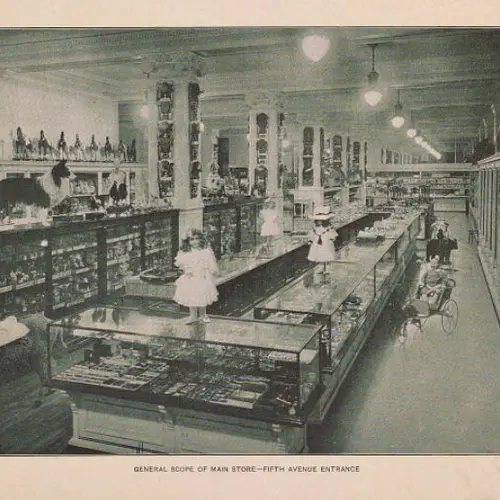
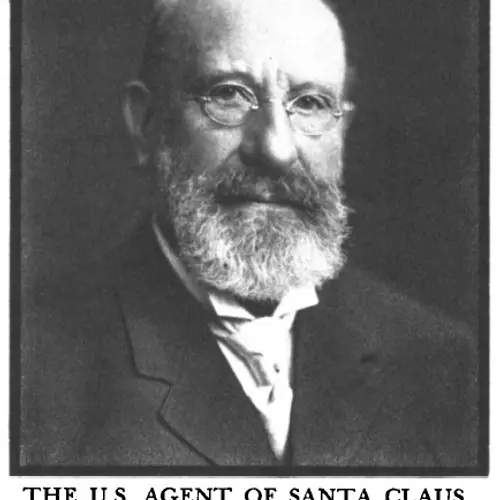
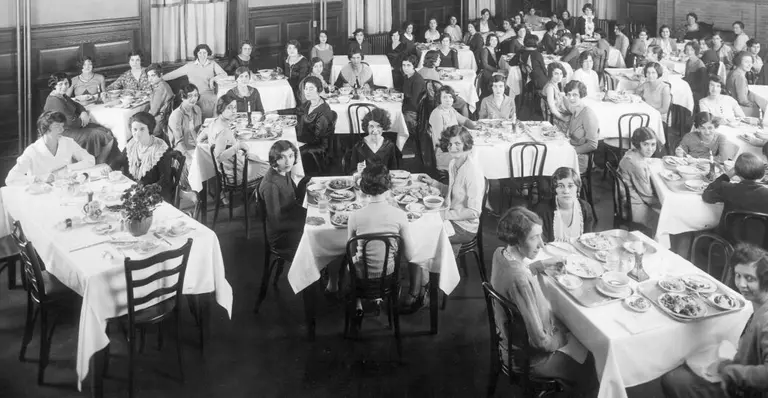
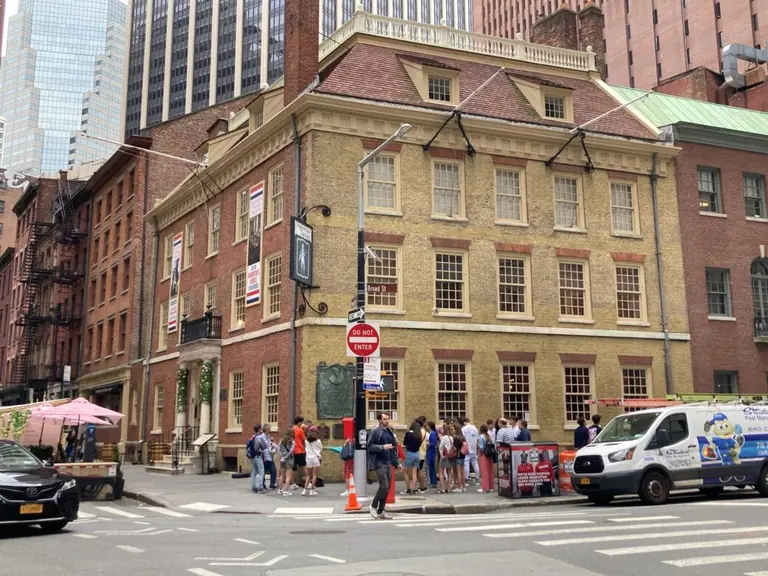









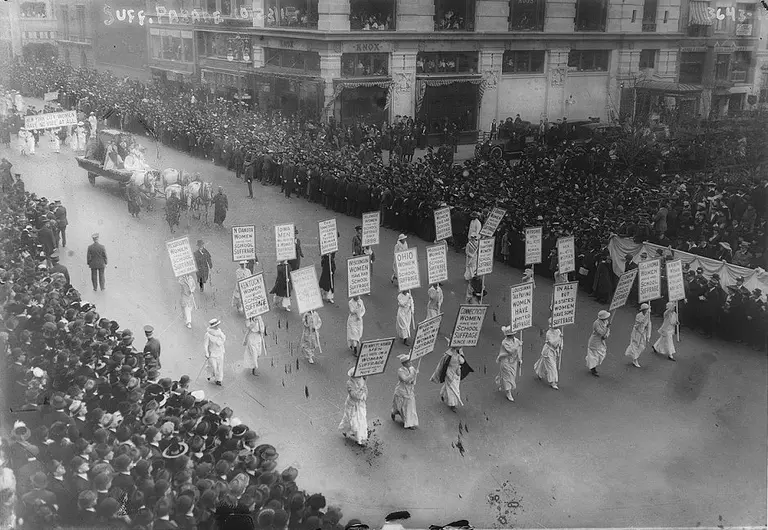




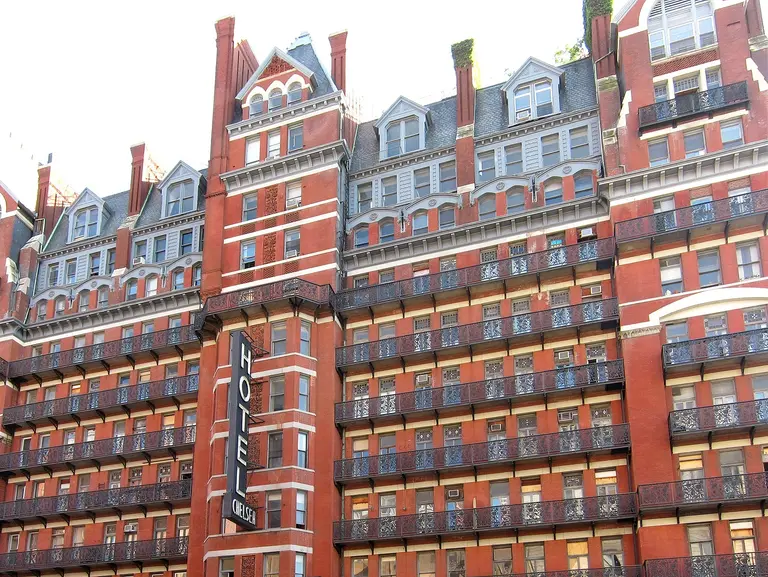











Where did the photo of Frederick August Otto Schwarz with teh caption Agent of Santa Claus come from? Thanks! Life is good, Bob